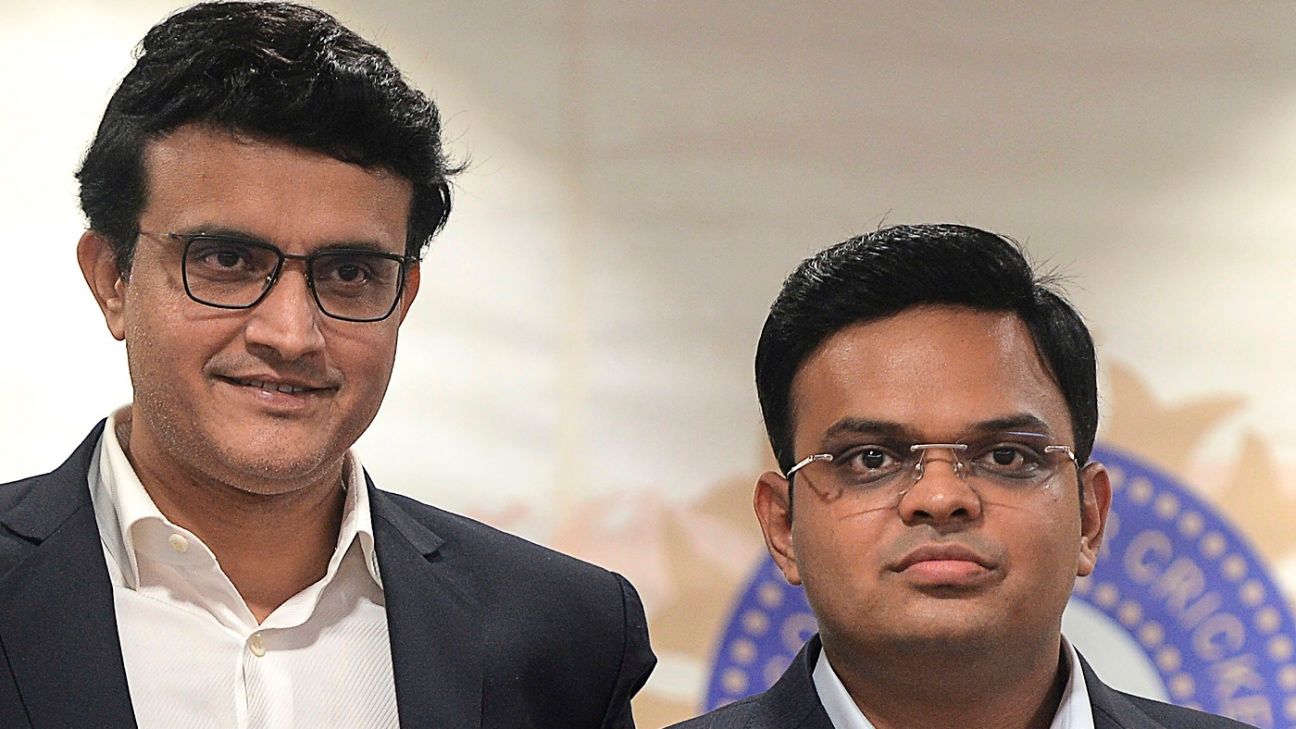
Even as he waits for the Supreme Court to consider rolling back certain reforms, BCCI president Sourav Ganguly has cautioned that without experienced people at the helm, even the richest and most powerful cricket board could fall swiftly.
Ganguly said "continuity" was "a very important" yardstick in running a sport and so the BCCI had approached the court in a "common sense" move to consider six amendments that his administration wanted to make to the board's constitution.
One of these concerns the tenures of the BCCI office-bearers. The BCCI has recommended that the president and the secretary be allowed to stay in office for two consecutive terms (6 years) irrespective of their past tenure. Except, as per the BCCI constitution, registered last August, an office-bearer who has held any post for two consecutive terms (six years) either at a state association or in the BCCI, or a combination of both, has to step away for cricket administration for a minimum of three years. During this period, they cannot serve in any capacity at either the BCCI or state level.
If the court allows the BCCI appeal, then Ganguly along with board secretary Jay Shah and the other three office bearers (treasurer, joint secretary and vice-president) can continue in their posts till 2024. If the court disagrees, then Ganguly, who was elected as BCCI president on October 23, as well as Shah will have to step aside in August 2020.
"That is what we have asked for in the court because both Jay and I have 10 months of term," Ganguly said in a chat with India Today on Friday. "Even Jayesh [George], who is the joint secretary, has 11 months. So we have requested on the basis of common sense that at the end of the day you need continuity to run the cricket board and we have just requested the Supreme Court. If they do it, fine, if they don't do it, then the term is only for 10 months."
On July 18, 2016, the court, in a seminal order, had approved the RM Lodha Committee recommendations which formed the basis for the structural reforms in BCCI. The board and the state associations did not conform to most of them, even after the court relaxed its stance in August 2018.
Eventually most of the state associations did fall in line, but questions are still being asked of the board and how it intends to implement all the reforms. Ganguly said the BCCI would take the opportunity at the next hearing on January 14 to explain that inexperience in administration is a factor that is preventing them from functioning as well as they could.
"I've been in the BCCI working committee for five years now, representing the Cricket Association of Bengal, which has a permanent seat in the working committee. This time when I went to the AGM, there was not one single face who had been there in the last four-five years. Sometimes, you cannot just throw away experience.
"It is required because you look at the earnings of the BCCI. They earn about INR 25,000 crores (approx. USD 3.51 billion) in five years. It is a phenomenal amount of revenue which comes in. The game has to be run, your representations with the world body have to be sorted, and to just expect newcomers to come and do it consistently over a period of time, I don't think is a fair thing. Continuity is important.
"Even in state associations when you go, to actually run state associations, the leadership is very, very important. And you have to find the right kind of people to run all these organisations because (there's) too much at stake is involved in running of these organisations are concerned. And if you don't get the right people, the entire system will come down."
Ganguly went to on to provide the examples of how struggling administrations in South Africa and West Indies had had a huge impact on their on-field performance. "You look at the other countries. South Africa. When I came into international cricket in 1996, they were probably the best side in the world. A team which had [Shaun] Pollock, [Allan] Donald, [Jacques] Kallis, [Lance] Klusener and you look at the current South African team.
"You've been following the news for the last two days. They speak about how the relationship with the administration has fallen off, how the sponsors want to back away because cricket is not being run properly. Even somebody like Graeme Smith, who was probably one of their greatest players, doesn't want to take up the job [as director of cricket] because he feels he won't be allowed to have a free run.
"Look at West Indies - the 1970s, the 1980s, what a force they were. And I feel one of the main reasons of cricket not doing well in those parts of the world is because of administrative failure. And you don't want to do that in India because India is the powerhouse of cricket in the world, in terms of finances.
"Look at our team. The best thing that has happened in the last three years is in spite of what has gone on in the courts, the team has performed fantastically. That's where the real strength lies of Indian cricket. In any form of work, whether it's business, running the state, running the country, running the board, you need good people to run it, experienced people to run it. Continuity is very important."















 Phone: (800) 737. 6040
Phone: (800) 737. 6040 Fax: (800) 825 5558
Fax: (800) 825 5558 Website:
Website:  Email:
Email: 






